 Today we are talking about milk! All kinds of milk. Not just from a cow. Plant based milk brands that are delicious and nutritious. I suppose it’s been on my mind as a breastfeeding mother of an 8 month old. If only we had control over the milk we purchase like we do when we’re nursing our babies.
Today we are talking about milk! All kinds of milk. Not just from a cow. Plant based milk brands that are delicious and nutritious. I suppose it’s been on my mind as a breastfeeding mother of an 8 month old. If only we had control over the milk we purchase like we do when we’re nursing our babies.
But today we will be talking about milk we purchase from the grocery store.
You can go with dairy sure… but non-dairy is better for the planet (and for animals) and can provide you with health benefits.
It’s first important to know what your goals are with milk. Are you looking for all the nutrients found in dairy milk? Will you be getting enough protein? Will you be getting too much sugar? All milks are not created equal.
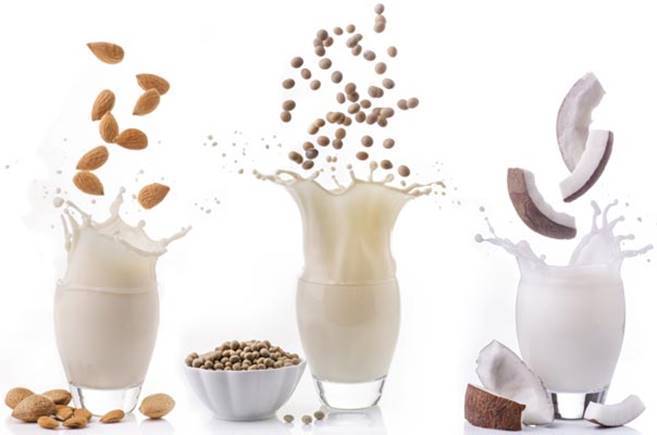
Know What You’re Missing:
Dairy milk is naturally rich in nutrients. Among them:
- Calcium (30 percent of the Daily Value per cup)
- Vitamin B-12 (20%),
- Potassium (10%)
- Vitamin D (25%)
Non-dairy milks add at least that much calcium and D. Only soy milk naturally matches dairy’s potassium, though some pea milks—Ripple and Bolthouse Farms (picture below)—add enough to rival soy.
Some milks boast that they’re “soy free.” But if you like soy and want its protein, healthy fat, and potassium, there’s no reason to drop it. (Click here for more on soy claims.) I personally drink organic unsweetened soy milk on the regular. Many plant milks don’t add B-12. If you’re a vegan, take a multivitamin.
What to watch for: At least 30% of the DV for calcium and 25% for vitamin D per cup.
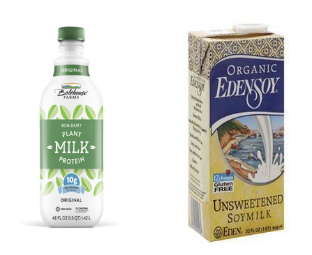
Get enough protein
Protein may not matter if you just want a low-calorie liquid to blend into your yogurt smoothie. But if you’re counting on milk for protein, look for at least 7 grams per cup. Dairy delivers 8 grams.
That means nearly all almond, cashew, coconut, flax, rice, and other nut milks are out. Nut milk protein is very low. They typically have 0 to 1 gram of protein per cup. But most soy and pea milks are in. (Some light or sweetened soy milks have just 5 or 6 grams.)
What to watch for: At least 7 grams of protein per cup (if you need it). Looking for non-dairy protein? Soy and pea deliver.
Limit added sugar
A cup of dairy milk has 3 teaspoons (12 grams) of naturally occurring lactose (milk sugar). Most non-dairy milks naturally have 0 to 2 grams of sugar. Anything more than that is added.
And some rice and oat milks have as much as 20 grams of sugar, because companies use enzymes to break down their starches into sugars. We count that sugar as added.
Who needs it? Plenty of unsweetened non-dairy milks taste good.
Don’t like unsweetened? Most sweetened “original” non-dairy milks have just 1 to 1½ teaspoons of added sugar—far less than most vanillas (1½ to 3 teaspoons) or chocolates (3 to 5 teaspoons).
Tip: Check the label. Blue Diamond Almond Breeze Hint of Honey Vanilla has 2 teaspoons of added sugar per cup. Pacific’s “lightly sweetened” Vanilla Hemp milk has 4 teaspoons per cup. You call that lightly?
What to watch for: No more than five grams (about a teaspoon) of added sugar per cup. Remember in a day it would be great not to have more than 50 grams of added sugars.
Get healthy fats
If you drink dairy milk, stick with 1% or fat-free organic milk (pasture raised is the BEST! Organic second best). Organic whole milk if you’re a child under 2 years old. But for non-dairy, don’t worry about the fat in nuts, seeds, and soy. It’s the healthier, unsaturated kind. Just limit coconut milk (mainly saturated fat).
What to watch for: No more than 2 grams of saturated fat per cup.
Skip rice milk
Arsenic is a human carcinogen, and rice soaks it up from soil and water. A half cup of rice milk could put an adult at the daily arsenic limit set by Consumer Reports. Kids under 5 shouldn’t drink rice milk daily.
What to watch for: No rice or rice syrup in the ingredients list.
Below is the nutrient breakdown of some of the milks discussed:
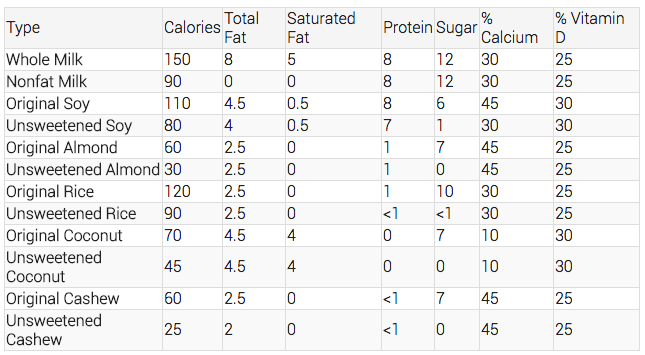
If you choose Dairy Milk:
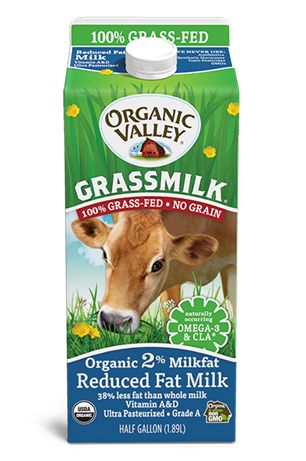
Choose pasture raised (top dog!) or organic low fat (full fat if you’re under 2 years old). Organic Valley Organic Grass-Fed 2% Milk is a great choice. Don’t choose raw milk at this time (the benefits do not outweigh the potential risk). Could be dangerous due to food borne illness ESPECIALLY for children.
If you choose Almond Milk:
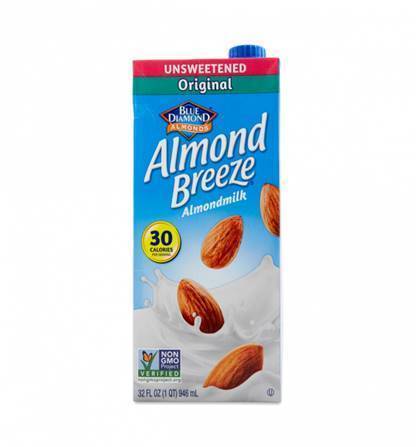 Organic unsweetened non-gmo and carrageenan free if you can help it (may be inflammatory). A real and good almond milk brand is Blue Diamond Almond Breeze Original Unsweetened.
Organic unsweetened non-gmo and carrageenan free if you can help it (may be inflammatory). A real and good almond milk brand is Blue Diamond Almond Breeze Original Unsweetened.
If you choose Soy Milk:
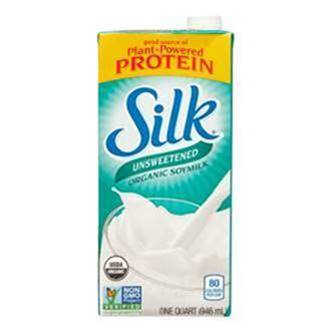 Unsweetened organic, non GMO, is best. Silk Organic, Non-GMO, Unsweetened Soy Milk is one of the best soy milk brands.
Unsweetened organic, non GMO, is best. Silk Organic, Non-GMO, Unsweetened Soy Milk is one of the best soy milk brands.
If you choose Cashew Milk:
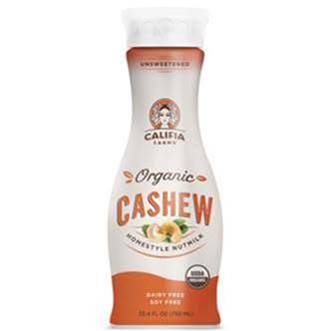 Pick one that contains at least 30% DV of calcium, organic, non-GMO and without added oils. Califa Farms Homestyle Cashew Milk is one of the best nut milk brands.
Pick one that contains at least 30% DV of calcium, organic, non-GMO and without added oils. Califa Farms Homestyle Cashew Milk is one of the best nut milk brands.
If you choose Hemp Milk:
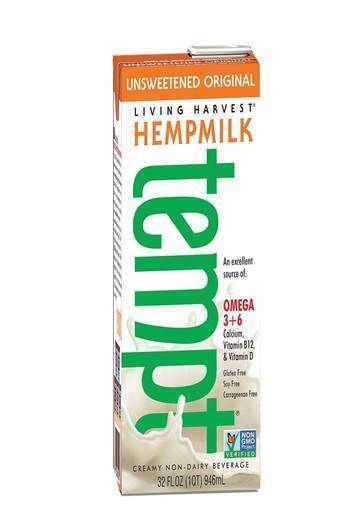 Choose unsweetened fortified with B12. Living Harvest Tempt™ Hempmilk Unsweetened Original is a great choice.
Choose unsweetened fortified with B12. Living Harvest Tempt™ Hempmilk Unsweetened Original is a great choice.
If you choose Pea Milk:
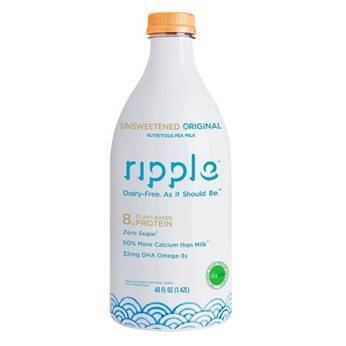 A high protein plant based milk that’s a star! Choose unsweetened and no other weird additives especially inferior oils. Sunflower is ok. I’m going to get this next time I’m at the store. Ripple Original Unsweetened Pea Milk is a great choice.
A high protein plant based milk that’s a star! Choose unsweetened and no other weird additives especially inferior oils. Sunflower is ok. I’m going to get this next time I’m at the store. Ripple Original Unsweetened Pea Milk is a great choice.
What I do:
For my cereal I use unsweetened organic almond milk (least amount of calories). If I want added protein however, I choose unsweetened organic non-GMO soy milk in my cereal. If I want creamy goodness in my coffee (haven’t had since before baby was born) I choose organic unsweetened cashew milk. My husband does organic 2% dairy milk sometimes pasture raised (if I have anything to do with it). 😉
Next time I go shopping, however, I’m going to get some Pea Milk.
For any questions or topic suggestions hit me up!
Your Studio SWEAT Dietitian,
Miriam Turner
Resources: Adapted from Nutrition Action Newsletter and Eat This, Not That!
Photo (top): © luigi giordano/fotolia.com.



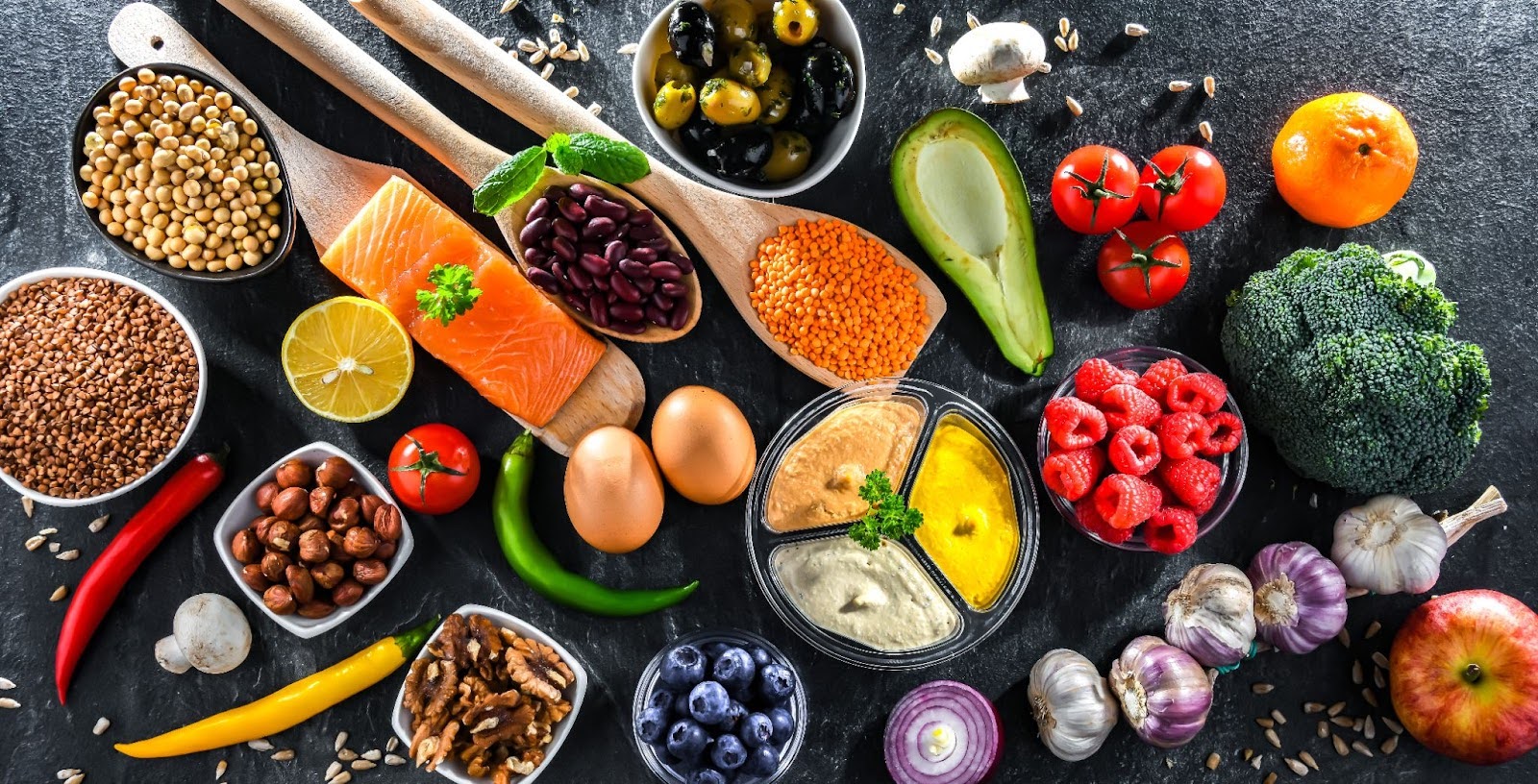





Comments - 0